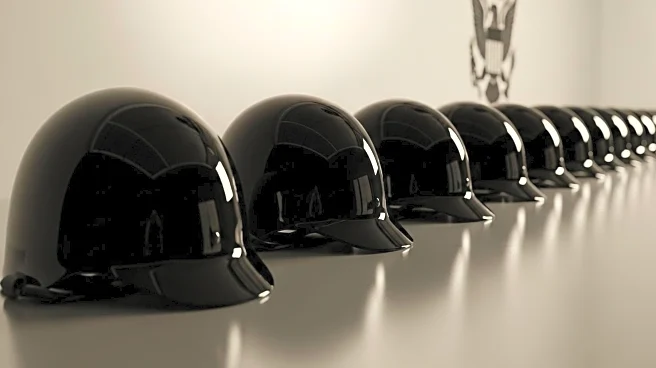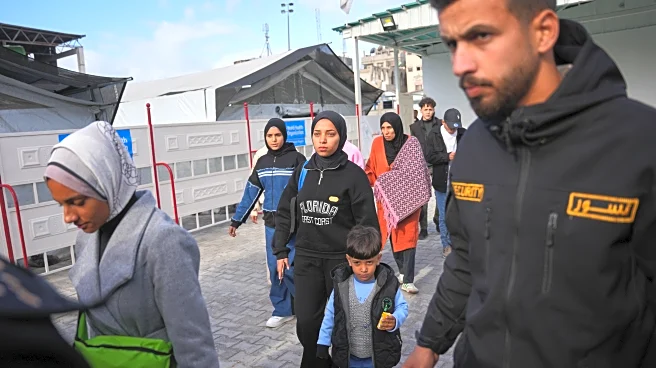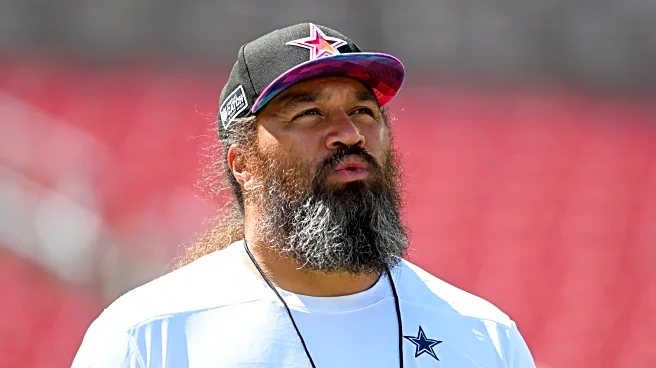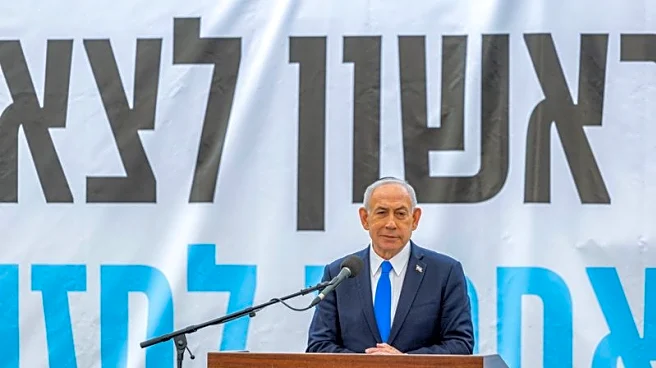What is the story about?
What's Happening?
President Trump has announced plans to federalize 300 members of the Illinois National Guard. This decision comes amid ongoing protests against Immigration and Customs Enforcement (ICE) activities in Chicago. Illinois Governor JB Pritzker confirmed the federalization plan but noted that the timeline for troop deployment remains unclear. The move is part of a broader response to civil unrest and protests in the city, which have been marked by tensions between demonstrators and law enforcement. The federalization of the National Guard is intended to bolster security and manage the protests more effectively.
Why It's Important?
The federalization of the Illinois National Guard by President Trump is significant as it highlights the escalating tensions between federal and state authorities over handling civil unrest. This action could have implications for state-federal relations, particularly in how protests and civil disobedience are managed. The decision may also impact public perception of the administration's approach to civil rights and law enforcement. For local communities, the presence of federalized troops could either be seen as a necessary measure for maintaining order or as an overreach of federal power, potentially leading to further unrest.
What's Next?
The next steps involve monitoring the deployment of the National Guard and assessing the impact on the ongoing protests. Stakeholders, including local government officials, civil rights organizations, and community leaders, are likely to respond to this development. The situation may prompt discussions on the balance between maintaining public order and respecting civil liberties. Additionally, the federalization could influence future policy decisions regarding the use of military forces in domestic situations.


















